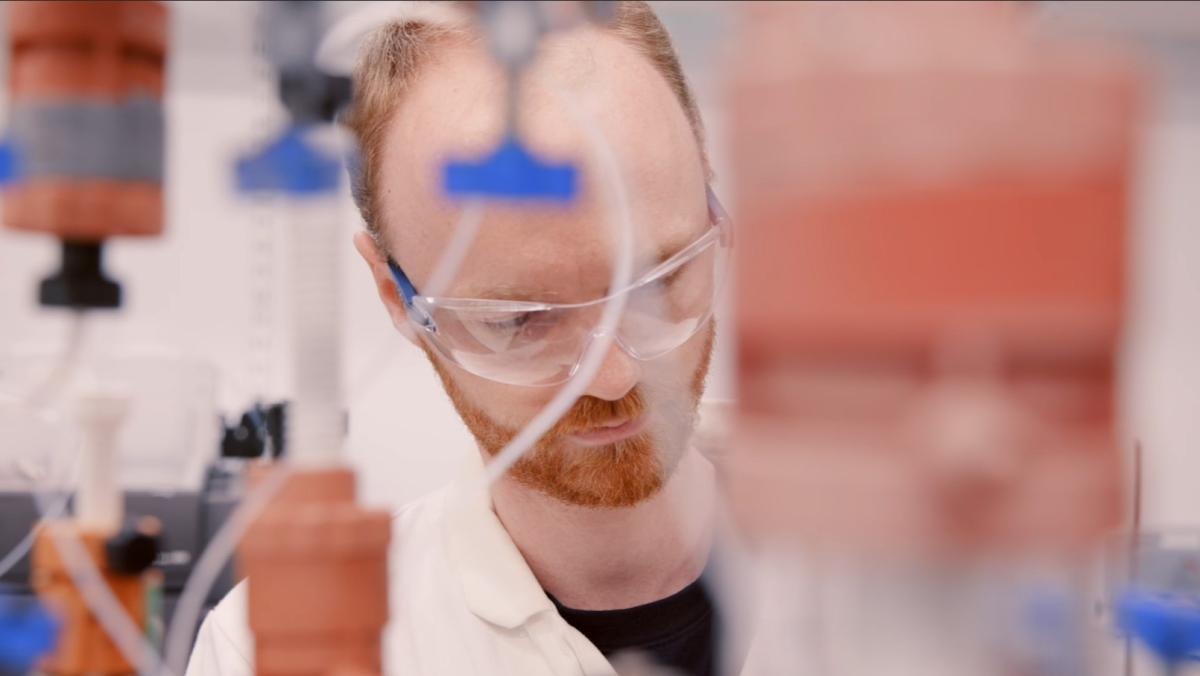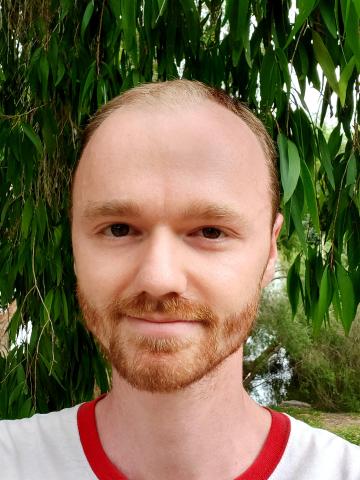Many last-resort antibiotics are becoming ineffective due to antimicrobial resistance (AMR), where bacteria develop the ability to resist the effect of drugs designed to kill them. To combat AMR, scientists at the IOI are developing new antimicrobials, while also finding ways to extend the action of existing drugs.
Dr Liam Wilson is a biochemist researching lactamases, bacterial enzymes that break down β-lactam antibiotics, one of the most widely used class of antibiotics in hospitals worldwide. Joining the IOI from his PhD work at University of Queensland, Liam is developing inhibitors that stop the action of MBLs and protect the antibiotic’s action against bacteria.

As a biochemist, Liam works across IOI’s biology and chemistry teams. He uses his expertise in biochemical assays to test lactamase inhibitor compounds that have been produced by IOI chemists. Over a project the chemists can make hundreds of compounds that Liam tests against a series of enzymes from different bacteria.
Making decisions based on your results, often when an experiment hasn’t worked, requires resilience. It is crucial to learn from these results to make progress. That said, the most exciting part of research is when something works, especially after a long time!

Liam isn’t only interested in whether an inhibitor compound works, he also investigates how it binds to the bacterial enzyme and interrupts enzyme activity. One way this can be investigated is through crystallography, where tiny crystals of a bound inhibitor and enzyme are produced and examined under a microscope. This produces detailed information that IOI chemists can use to refine the compound further and improve its efficacy in inhibiting the enzymes.
He says "This is a really important step in the process, because even though we’re making informed decisions on the inhibitor compounds we test against the bacterial enzyme, we don’t know exactly where or how those compounds will behind until we do the crystallography."
When a promising inhibitor compound has been identified, the IOI biology team then study its action in bacterial cells. This is an important step in the drug development process, as the inhibitor compound may not work as effectively inside the bacterial cell.
The translational nature of the IOI’s work is exciting. I work closely with biologists and chemists to maximise knowledge sharing that informs our research in real-time.

